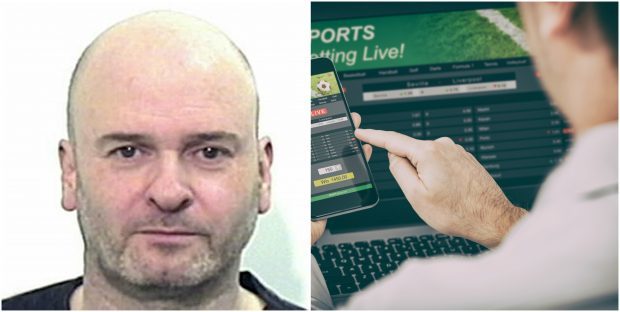The first rule of gambling is the house always wins.
Whether it’s in a casino or bookmakers, the people fixing the odds are the ones that come out ahead.
It leaves us to wonder exactly why William Hill felt the need to make an ex gratia payment of £500,000 to Dundee City Council after IT worker Mark Conway was convinced of defrauding the local authority out of more than £1 million to fund his gambling addiction.
The bookmakers refused to comment on why they made the payment, given they were not legally obliged to do so.
Perhaps should have done more to spot what was clearly problematic behaviour on Conway’s part.
After all, he kept stealing in the hope he would win big enough to clear up the ever-deepening sinkhole of debt he was accumulating as he made losing bet after losing bet on football matches.
While Conway has become Dundee’s poster boy for problem gambling, there is a deeper issue regarding the UK’s attitude to betting that needs addressed.
Watch any football match on a channel that isn’t the BBC and you will be inundated with adverts encouraging you to bet on the match online or via your phone.
Like all adverts, they exist to sell their product, making gambling look not just fun but crucial to the enjoyment of watching sport.
One newspaper report on Conway branded him a “football betting flop” as if the problem was he just wasn’t very good at it.
The truth is gambling addiction ruins lives and that no matter how clever the person making the bet thinks they are, their luck will run out eventually.
A Church of England study this week found two-thirds of teenagers feel they are being bombarded with gambling adverts.
More worryingly, a majority of respondents said the adverts made gambling look fun.
Almost half said the adverts made gambling look like a good way to make money, which it undeniably is – just not for the punters.
The gambling industry does make some concessions to the idea of social responsibility – they payment to Dundee City Council is one example, the rather trite and meaningless “when the fun stops, stop” tagline on adverts is another,
There are more than 400,000 problem gamblers in the UK with around two million people at risk of addiction, more than a third of whom gamble online.
This is a problem that is only going to get worse until there is the same sort of cultural shift that transformed attitudes towards drink-driving and smoking.
Hopefully that tipping point will arrive before there are too many more Mark Conways.










